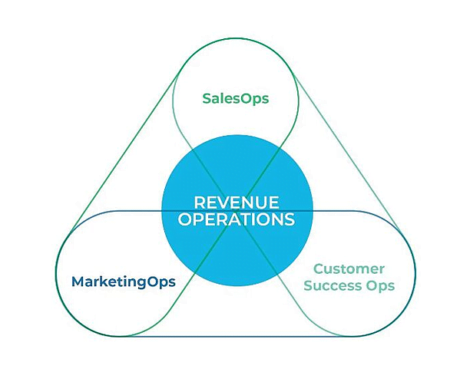Technology has transformed people’s buying behaviors, and in turn, it’s shifted how businesses think about revenue: It’s not just an outcome, it’s a process across the entire Buyer’s Journey that goes well beyond the first sale.
More and more organizations are adopting this mindset, increasing the need for more “revenue” type roles, such as sales operations (SalesOps) and revenue operations (RevOps). While they’re both meant to save time, break down departmental silos, and increase revenue, here are three ways they differ from each other.
1. SalesOps vs. RevOps: Purpose and Goals
SalesOps: Tactical Sales Strategies
SalesOps is a subset of RevOps, and it concentrates primarily on the tactical work that the sales team needs to improve sales processes and systems, and convert new customers more effectively. Depending on your organization, SalesOps may oversee sales enablement, strategic planning, and team communication, allowing sales reps to spend more time doing what they do best—sell.
Sales frequently works with marketing, too. However, they differ in the fact that SalesOps hones in on driving revenue through sales activities, while MarketingOps drives revenue through marketing initiatives.

RevOps: Big-Picture Revenue Acceleration
RevOps’ ultimate goal is to accelerate predictable revenue with automated processes and tools, and to see operations as a holistic company strategy, not just a role. RevOps works with marketing, sales, finance, and customer service departments to analyze the entire Buyer’s Journey and break down internal silos, such as a lack of pipeline transparency or a lack of communication between departments.
Establishing a RevOps team frees up your sales team’s time, so they can focus more on generating sales. Meanwhile, RevOps works behind the scenes, streamlining processes, cleansing data, and fine-tuning the entire go-to-market strategy.







